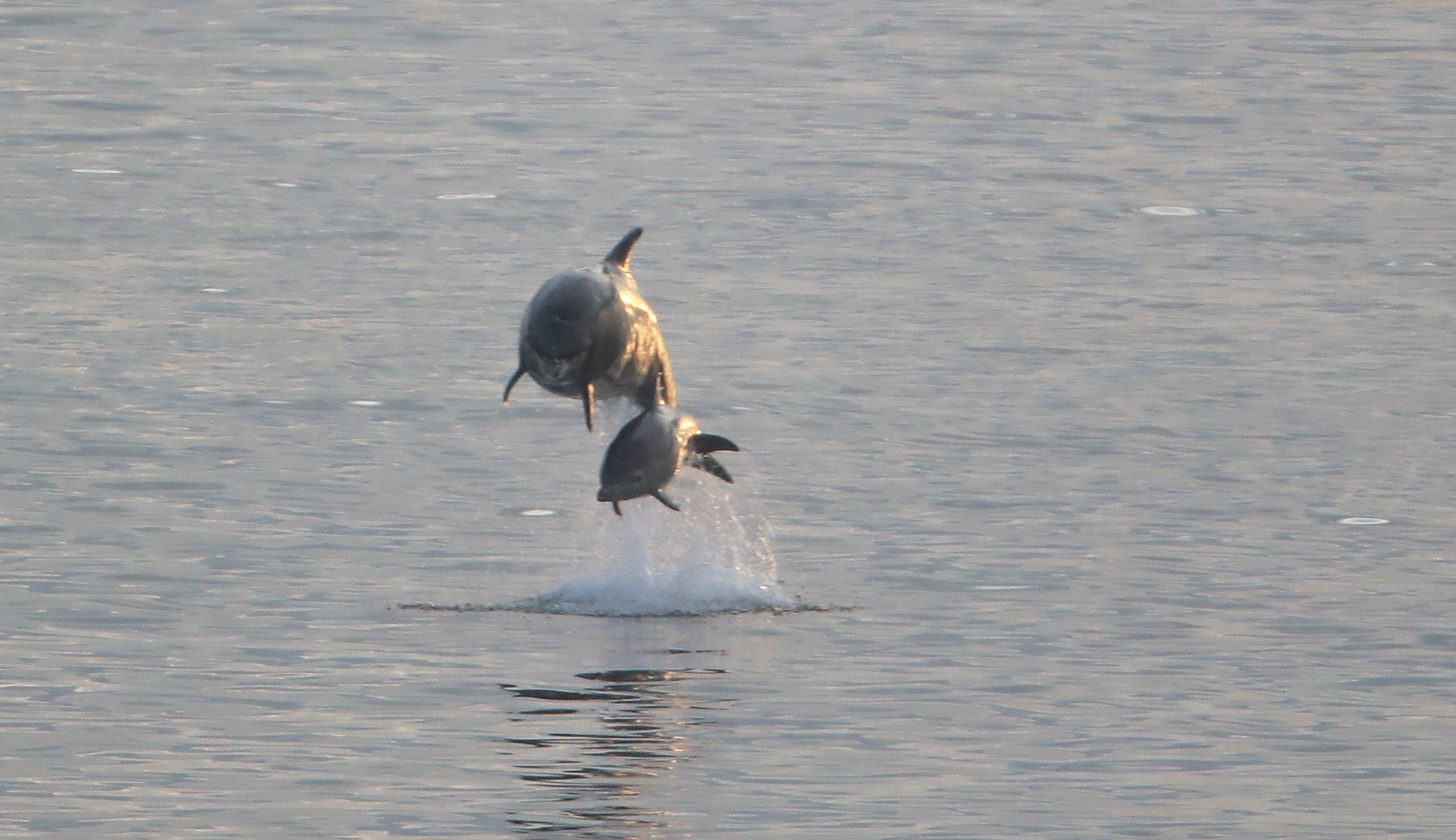Male dolphins whistle to maintain important relationships – study
The animals are known to use gentle petting with strongly bonded allies, but as the numbers of these relationships grow, they have less time for this.

Your support helps us to tell the story
From reproductive rights to climate change to Big Tech, The Independent is on the ground when the story is developing. Whether it's investigating the financials of Elon Musk's pro-Trump PAC or producing our latest documentary, 'The A Word', which shines a light on the American women fighting for reproductive rights, we know how important it is to parse out the facts from the messaging.
At such a critical moment in US history, we need reporters on the ground. Your donation allows us to keep sending journalists to speak to both sides of the story.
The Independent is trusted by Americans across the entire political spectrum. And unlike many other quality news outlets, we choose not to lock Americans out of our reporting and analysis with paywalls. We believe quality journalism should be available to everyone, paid for by those who can afford it.
Your support makes all the difference.Male bottlenose dolphins save physical contact for those they feel closest to, but for other weaker – yet still important – relationships they connect through whistling, a study has found.
The animals are known to use gentle petting with strongly bonded allies.
But as the numbers of these relationships grow, they have less time for this kind of touching, and rely on the more time-efficient vocal exchanges.
University of Bristol scientists, with international colleagues, examined nine years of acoustic and behavioural data from a dolphin population in Shark Bay, Western Australia.
Within the core dolphin alliances, strongly bonded allies engaged in more affiliative contact behaviour, such as petting and rubbing, while weakly bonded allies engaged in more whistle exchanges
Lead author Emma Chereskin, from Bristol’s School of Biological Sciences, said: “Many animals, including humans, use tactile contact, touch, to strengthen and reaffirm important relationships.
“But as the number of close social relationships increases, so too do the demands on the time and space available for relationship maintenance through physical contact.
“Male bottlenose dolphins form strategic, multi-level alliances, and we wanted to know how they maintained multiple alliance relationships in large groups.”
By following groups of males that knew each other, and documenting their physical and acoustic behaviour, researchers identified the different ways these males bonded with each other.
Senior author Dr Stephanie King, also from Bristol, said: “We found that within the core dolphin alliances, strongly bonded allies engaged in more affiliative contact behaviour, such as petting and rubbing, while weakly bonded allies engaged in more whistle exchanges.
“This illustrates that these weaker but still key social relationships can be maintained with vocal exchanges.”
The findings are published in Current Biology.